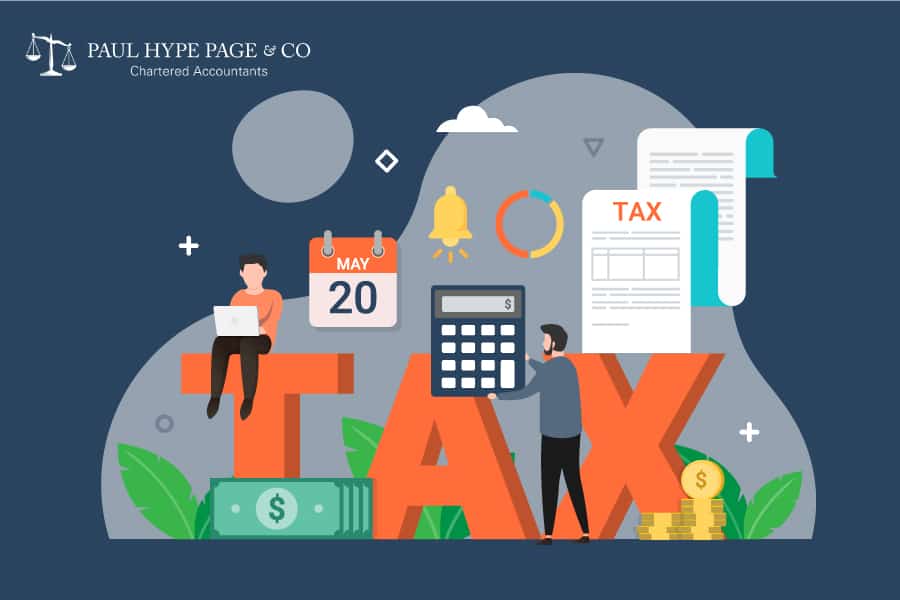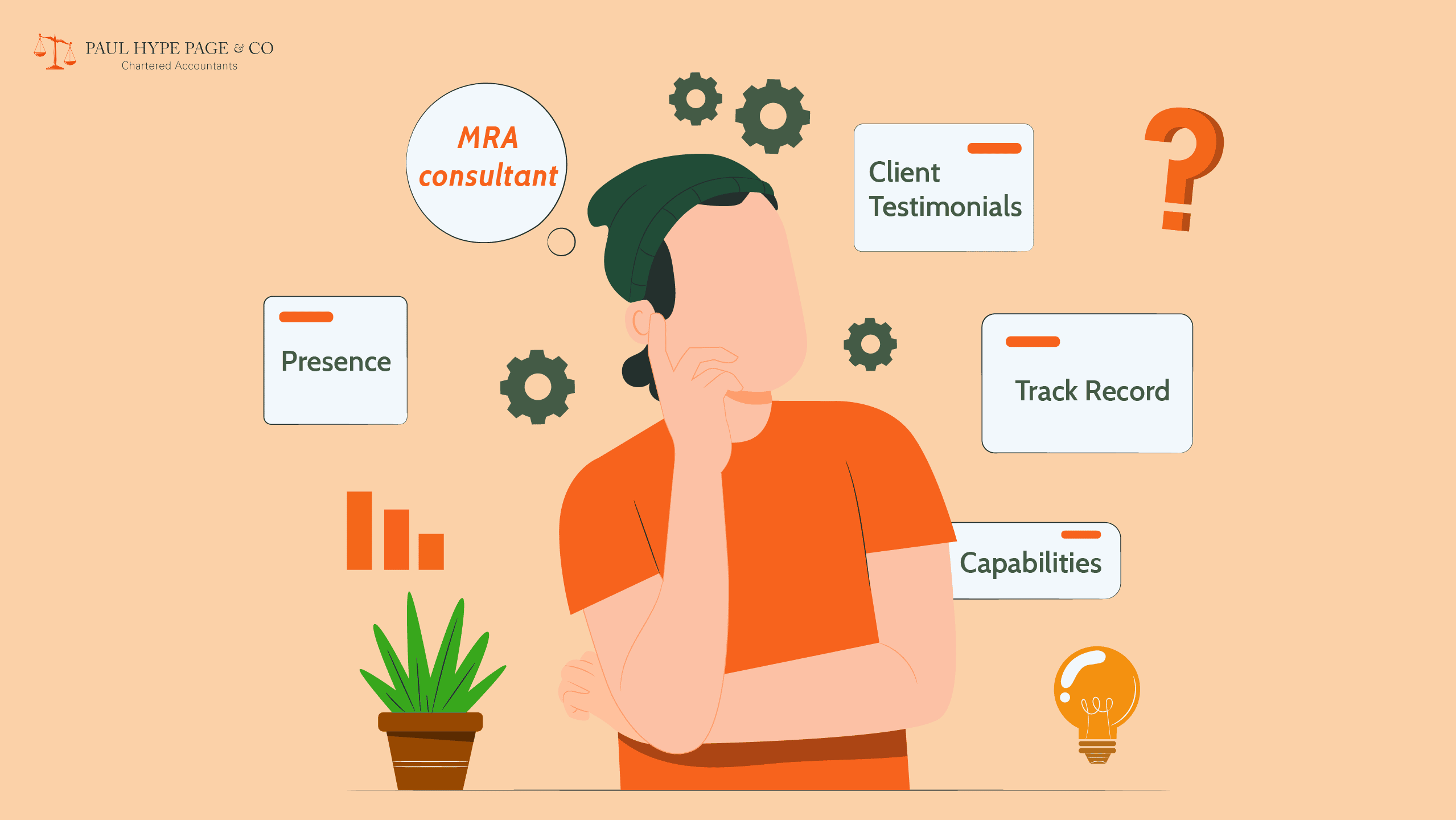The Enterprise Innovation Scheme (EIS) is a Singaporean government initiative introduced in Budget 2023 to encourage businesses to engage in research and development (R&D), innovation, and capability development activities. Available from Year of Assessment (YA) 2024 to YA 2028, the EIS offers enhanced tax deductions and allowances.
Qualifying Expenditures in Five Key Areas
Qualifying R&D Undertaken in Singapore
Companies investing in research and development within Singapore can claim a 400% tax deduction on the first S$400,000 of qualifying R&D expenditures. Furthermore, this deduction incentivizes local innovation by reducing the financial burden on businesses exploring new technologies, products, or services, keeping Singapore at the forefront of global R&D activity.
Registration of Intellectual Property (IP)
Singapore-based businesses can claim a 400% tax deduction on the first S$400,000 of qualifying IP registration costs. Moreover, this provision supports companies seeking to protect their intellectual property, be it trademarks, patents, or other IP rights, by making the registration process more affordable and accessible.
Acquisition and Licensing of Intellectual Property Rights (IPRs)
For companies with annual revenue under S$500 million, a 400% tax deduction is offered on the first S$400,000 of costs related to the acquisition or licensing of intellectual property rights. This deduction facilitates technology transfer and enables smaller businesses to access advanced technologies and innovations through licensing, fostering an ecosystem where smaller firms can quickly adopt new capabilities.
Training
Investing in skills is a key pillar of the EIS. Thus, companies can claim a 400% tax deduction on the first S$400,000 of qualifying training expenditures for courses that qualify for SkillsFuture Singapore funding and are aligned with the Skills Framework. Additionally, this component aims to develop a highly skilled workforce equipped with cutting-edge knowledge, benefiting both employees and the broader economy.
Innovation Projects with Partner Institutions
Companies can collaborate with educational and technical institutions, such as polytechnics and the Institute of Technical Education (ITE), to conduct innovation projects and claim a 400% tax deduction on the first S$50,000 of qualifying expenditures. In addition, these partnerships promote knowledge sharing between industry and academia, supporting businesses in tackling specific challenges and fostering real-world applications of academic expertise.
Additional Cash Payout Option
In addition to tax deductions, the EIS provides a cash payout option for eligible businesses, allowing them to convert up to S$100,000 of qualifying expenditures into a cash payout at a 20% conversion rate, capped at S$20,000 per YA. This feature is particularly beneficial for smaller firms or those in growth phases, as it improves liquidity and provides immediate funding that can be reinvested into innovation activities.
Objectives and Impact
The EIS is designed not only to enhance business competitiveness but also to stimulate economic growth and drive Singapore’s position as a regional innovation hub. By reducing the financial barriers to R&D, intellectual property development, skills training, and institutional collaboration, the EIS provides a framework for businesses to adapt, grow, and excel in a competitive landscape. It aligns with Singapore’s vision to be a leader in innovation and technology, supporting businesses in creating long-term value through transformative initiatives.
Eligibility Criteria of the Enterprise Innovation Scheme (EIS)
The eligibility criteria for the Enterprise Innovation Scheme (EIS) in Singapore focus on ensuring that businesses engaging in R&D, innovation, intellectual property development, and employee training can benefit from enhanced tax deductions and allowances. Here’s a breakdown of the main eligibility requirements:
Active Business Operations in Singapore
- Locally Registered: The business must be registered and actively operating in Singapore.
- Relevant Assessment Year (YA): Eligibility applies to qualifying activities conducted during the basis period for each Year of Assessment (YA), from YA 2024 to YA 2028.
Qualifying Expenditures
Only specific types of expenditures qualify for the EIS, and businesses must ensure that their activities fall within the scheme’s defined categories:
| Research and Development (R&D) | Must be conducted within Singapore. |
| Intellectual Property (IP) Registration | Only costs associated with the registration of IP such as patents and trademarks qualify. |
| Acquisition and Licensing of Intellectual Property Rights (IPRs) | Businesses with annual revenue under S$500 million can claim these costs. |
| Employee Training | Training expenses must be eligible for SkillsFuture Singapore funding and aligned with the Skills Framework. |
| Collaboration Projects | Costs for innovation projects undertaken with designated partner institutions, such as polytechnics or the Institute of Technical Education (ITE), are eligible. |
Employee Requirement for Cash Payout Option
To qualify for the cash payout option, businesses must meet the following:
- Minimum Employee Count: The business must employ at least three full-time local employees, making contributions to the Central Provident Fund (CPF) for at least six months within the assessment period.
- Timely Tax Filing: The business must file its Income Tax Return for the relevant YA before the statutory deadline.
Documentation and Compliance
- Detailed Record-Keeping: Businesses must keep detailed records of all qualifying expenditures. The IRAS may require businesses to provide documentation to verify claims.
- Submission Through myTax Portal: Businesses are expected to submit claims and applications through the myTax Portal, ensuring accurate reporting in alignment with IRAS guidelines.
Eligible Business Structure
- Sole Proprietorships, Partnerships, and Companies: All business types (sole proprietorships, partnerships, and incorporated companies) can qualify for the scheme, provided they meet the above criteria.
Additional Conditions for Cash Payout
For the cash payout option, businesses can convert up to S$100,000 of qualifying expenditures into a non-taxable cash payout, capped at S$20,000 per YA. This option is designed to support smaller businesses, particularly those that may benefit more from cash flow than tax deductions. By meeting these eligibility criteria, businesses can effectively leverage the EIS to gain financial support for innovation and development initiatives in Singapore.
Application Process for the Enterprise Innovation Scheme (EIS)
To benefit from the Enterprise Innovation Scheme (EIS) in Singapore, businesses must follow specific procedures to claim enhanced tax deductions or opt for a cash payout. Here’s a step-by-step guide:
Claiming Enhanced Tax Deductions/Allowances:
Eligibility: Businesses must carry on active operations in Singapore and incur qualifying expenditures during the basis period of the relevant Year of Assessment (YA).
Filing Process
- Sole Proprietorships and Partnerships:
- Include the enhanced tax deductions/allowances as part of ‘Allowable Business Expenses’ in the 2-Line/4-Line statement in the Income Tax Return.
- Submit details of the enhanced tax deductions/allowances claimed via the ‘Submit EIS Enhanced Deduction/Allowance Records’ digital service on myTax Portal.
- Companies:
- Declare the enhanced deductions/allowances in the Corporate Income Tax Return (Form C-S/C).
- Complete the ‘Enterprise Innovation Scheme’ section of the Corporate Income Tax Return with the necessary details.
Deadlines:
- Sole Proprietorships and Partnerships: File by 18 April of the relevant YA.
- Companies: File by 30 November of the relevant YA.
Applying for the EIS Cash Payout
Eligibility: In addition to the general conditions, businesses must:
- Meet the 3 full-time local employee condition, which requires making Central Provident Fund (CPF) contributions for at least three local employees for a minimum of six months during the basis period of the qualifying YA.
- File the Income Tax Return for the respective YA before the statutory filing due date.
Application Process:
- After submitting the Income Tax Return, apply for the cash payout via the ‘Apply for EIS Cash Payout’ digital service on myTax Portal.
- Ensure the application is submitted before the income tax filing due date for the relevant YA.
Additional Notes:
- The ‘Apply for EIS Cash Payout’ digital service becomes available only after the Income Tax Return has been filed.
- For businesses filing paper forms, submit the Income Tax Return early, as it may take up to seven working days for the filing status to be updated.
Documentation Requirements for Application
To effectively utilize the Enterprise Innovation Scheme (EIS) in Singapore, businesses must maintain comprehensive documentation to substantiate their claims for enhanced tax deductions or cash payouts. The specific documentation requirements include:
Detailed Records of Qualifying Expenditures:
- Invoices and Receipts: Maintain original invoices and receipts for all qualifying expenses. This includes R&D activities, IP registration, IP acquisition or licensing, employee training, and innovation projects with partner institutions.
- Contracts and Agreements: Keep copies of contracts or agreements related to qualifying activities, including those with research institutions, training providers, or IP vendors.
- Payment Proofs: Retain evidence of payments made, such as bank statements or payment vouchers, corresponding to the qualifying expenditures.
Detailed Descriptions and Supporting Documents:
- Project Reports: Prepare comprehensive reports detailing the nature, objectives, and outcomes of R&D projects or innovation initiatives.
- Training Records: Document training programs attended by employees, including course outlines, attendance records, and completion certificates.
- IP Documentation: For IP registration or acquisition, maintain copies of application forms, approval letters, and any related correspondence.
Employee Records (for Cash Payout Eligibility):
- CPF Contribution Records: Provide records showing Central Provident Fund (CPF) contributions for at least three local employees over a minimum of six months during the basis period of the qualifying Year of Assessment (YA).
- Employment Contracts: Keep signed employment contracts for the relevant employees to verify full-time employment status.
Financial Statements and Tax Filings:
- Audited Financial Statements: Prepare financial statements to accurately reflect the qualifying expenditures and follow accounting standards.
- Income Tax Returns: File timely and accurate Income Tax Returns, incorporating claims for enhanced deductions or allowances under the EIS.
Application Forms and Declarations:
- EIS Enhanced Deduction/Allowance Records: Submit detailed records via the ‘Submit EIS Enhanced Deduction/Allowance Records’ digital service on myTax Portal.
- Cash Payout Application: If you opt for the cash payout, complete the application through the ‘Apply for EIS Cash Payout’ digital service on myTax Portal. This should be done after filing the Income Tax Return.
Additional Supporting Documents:
- Business Plans and Proposals: Include documents that outline the strategic objectives and expected outcomes of the qualifying activities.
- Correspondence with Authorities: Retain any communications with regulatory bodies or institutions related to the qualifying activities.
Organized documentation is essential, as IRAS may request records to verify EIS claims. Accurate documentation ensures compliance and facilitates a smoother claim process for enhanced tax deductions or cash payouts.
Consulting a Tax Professional
Navigating the EIS and maximizing its benefits can be complex. This is especially true for businesses new to tax deductions or with limited tax expertise. Consulting a tax professional can be invaluable in ensuring compliance, optimizing claims, and addressing any uncertainties in the application process. Here’s how a tax professional can help:
Expertise in EIS Requirements
Tax professionals stay well-versed in the latest EIS guidelines and the qualifying criteria for each type of expenditure. They can help identify all eligible costs and ensure each one aligns with the EIS framework, ensuring that your business does not miss out on potential benefits.
Accurate Filing and Documentation Support
Preparing and organizing the extensive documentation required for EIS can be time-consuming. A tax professional can manage this process by helping to compile, review, and submit all necessary records. This includes everything from invoices and contracts to project reports and training documentation. This minimizes the risk of errors and provides peace of mind that your filing is accurate.
Maximizing Tax Deductions and Cash Payouts
A tax advisor’s deep understanding of EIS tax deductions, allowances, and cash payout options enables strategic planning. This expertise helps maximize benefits for your business. They assess your business’s unique activities to tailor these strategies effectively. By advising on which expenditures to prioritize and structure, they help you fully leverage the scheme. This ensures you make the most of the available 400% tax deductions and cash payout option, where applicable.
Guidance on Compliance and Avoiding Penalties
The IRAS may request additional information or conduct reviews of EIS claims, and inaccuracies can lead to delays or penalties. Tax professionals help ensure that your application meets all compliance standards, reducing the likelihood of audits, penalties, or disallowed claims.
Long-Term Tax Planning and Strategy
For businesses planning to leverage the EIS over multiple years (YA 2024 to YA 2028), tax professionals offer valuable support. They assist with long-term tax planning to maximize benefits. They help structure R&D and innovation activities to optimize benefits over time. This ensures your business consistently maximizes tax savings while aligning with strategic goals.
Efficient Handling of Cash Flow with the Cash Payout Option
For businesses choosing the cash payout over tax deductions, a tax professional can assist with the application process. They help ensure timely submission and efficient processing. This can improve cash flow, especially for startups or smaller businesses needing immediate liquidity.
Partnering with a tax professional helps your business confidently navigate the EIS and make informed decisions. It also unlocks significant savings to drive innovation and growth.
About The Author
Share This Story, Choose Your Platform!
Related Business Articles





